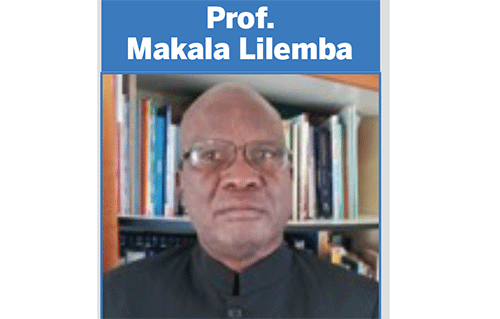I recently bumped into mzee Justin Ellis, one of the few Namibian educators who challenged the apartheid and oppressive education system in his book, ‘Education, Repression and Liberation, Namibia’, written in 1984, during those dark days of the liberation struggle.
I commended him for the book as it greatly opened my academic horizon and used it for my Masters dissertation. We briefly exchanged notes about the current status of education in general and the challenges faced emanating from poor delivery in particular. The brief encounter was a reminiscent of the education system that prevailed during that time as compared to the current status of this important aspect in the lives of the people. One thing which crept in my mind is the way the current educational regime has relegated the importance of capable expert retirees into the doldrums.
It is probable that more could be extracted from these brains, unlike leaving them rotting in the dustbin of educational history, but rather could be put to good use where necessary, of course not standing in the way of youth employment. These expert retirees possess experience, which can be transferred to the young generation. This could be in line with John Locke’s philosophy of empiricism; the idea that all learning comes from only experience and observations.
The theory of empiricism attempts to explain how human beings acquire knowledge and improve their conceptual understanding of the world. Although the philosophy of empiricism has been challenged that sometimes one does not need experience to perform a particular task, as it can be learning on the job.
Furthermore, it becomes very difficult to obtain experience when one was not employed to enable one acquire that as jobs are scarce in this country. The reason for creating a reservoir is to prepare the nation, in case a person is needed who could be employed on temporary basis. Instead of running around looking for expert elsewhere, the retirees bank could be contacted and the right person secured in the nick of time.
There could be labour agents in the country, which seem to be dormant and ineffective, and confined to certain places, and maybe not serving the national interests, as they are not popular. The reservoir for retirees could take different forms of which few could be suggested.
Reservoir for educators which could include retired teachers, education officers in the inspectorate and advisory services, language experts, former directors and deputy-directors of education and many other experts in the education sector. In the case of any challenge related to educational matters, these retired officers could be consulted to assist instead of going out there soliciting for external support.
It has been established in some sectors that local leadership does not aspire making use of the local expertise, but would rather opt for external advisors for something Namibians can handle. This is what Chinua Achebe (1966) illustrates in his book, ‘A Man of the People’, in which the main character, Chief Nanga advances the whites at the expense of the black Nigerians. This also happened the other year, when a contemporary Masters student from an Eastern African country facilitated a workshop which could be easily handled by Namibians, who were in the same programme at the University of Manchester, United Kingdom. Equally, there are many retired administrators out there who could be put to good use in orientating new appointed clerical officers. One might think that the old system of record keeping is outdated and irrelevant in our times, but this is not true as knowledge takes time to be outdated and irrelevant.
The wisdom of our ancestors is still useful and sometimes better than the advances of technology. It is this knowledge which have kept them going and further moulded the current generations. It should be kept in mind that it was Form 111 clerks who kept the offices running and the lowly qualified teachers who produced today’s doctors and professors, let alone politicians of repute. They kept the filing system going and responded to correspondences in those apartheid offices. In today’s world of democracy, we could tap the wisdom of some police officers who handled sensitive cases during the apartheid era and more so those who helped the suspected freedom fighters to skip the country.
The elderly retired police officers could orientate the young cadets, even teach them some tactics used during their times. You see, there is the impression that the old ones have no skillful teeth and hence cannot bite. This reminds of a fable story we read in Ñwanyi (Eagle), a Silozi reader in which the master after beating the dog for failing catching a duiker, the former appealed for understanding as it was getting old. It reminded the master of the good old days, when it could catch any animal within its reach. Our retired employees should really be commended for their services rendered to the oppressed people. Of course, they could be those for one reason or another have collaborated with the oppressive system, sometimes willingly or maybe had no choice. We hear of condemnation these days calling one another names, but whatever the case might be, organizations puppeteer to one regime or another, either the West or the East. But the need for workers’ reservoir is important as it will assist them from loafing around and sometimes deter them form committing suicide, a common phenomenon in this country.
*Professor Makala Lilemba is an academician, administrator, author, diplomat, motivated leader, researcher and scholar.


